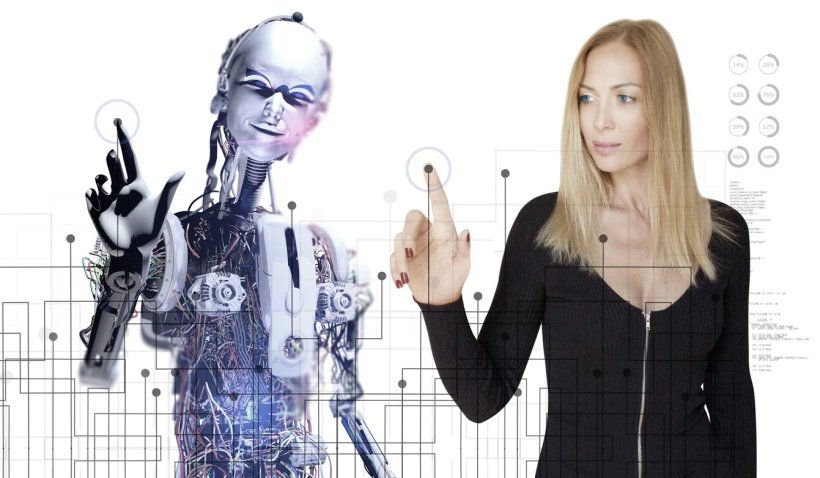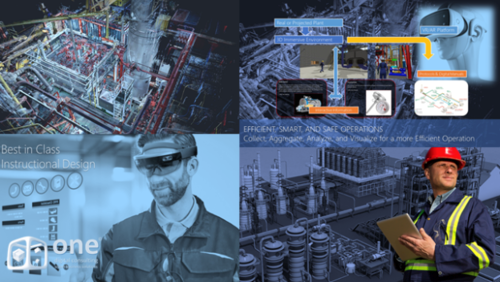Introduction
“The world as we have created it is a process of our thinking. It cannot be changed without changing our thinking.” Albert Einstein
New technologies such as robotics and artificial intelligence are rapidly changing people’s jobs and lives. Technology will likely change many of the existing jobs, requiring workers and companies to adjust. While maybe only one in seven jobs may be lost to automation, many others will change significantly. OECD suggests in their study (2018), that around 14% of all jobs across 32 countries analyzed have a high risk of automation, 32% of existing jobs may experiment significant changes to how they are carried out.
In the other hand, and according the OECD study, It is now essential to ensure that schools prepare students for a world in which they will constantly be adjusting to new technologies, new business models, and new ways of working. People, including young people, need to be equipped with the type of skills that will allow on average 25 job changes throughout their lives.
Therefore, learning systems will need to adapt to the changes brought about by automation and teach students that allow them to take full advantage of the current wave of technology adoption. This includes skills such as cognitive and social intelligence but also extends to the skills needed to work effectively in a digital context, both as specialists and users of digital technologies.
The Problem
New technologies are an emerging industry creating employment opportunities and entrepreneurial possibilities. According to projections set out by the European Commission, market demands for qualified information and communications technology (ICT) specialists will not be met, seeing a shortfall of up to 500,000 ICT professionals in 2020. Virtual and augmented reality solutions are amongst those with some of the highest market demand in the ICT sector.
Skills, and skills development, are an essential component of all efforts in this challenging society. Too many workers are simply unprepared to meet the needs of firms, particularly in more competitive economic environments.

New skills development for more complex jobs. Technicians need to be proficient and continue to change rapidly as tasks become more complex. Find the right info at the right moment. Technicians need fast access to all info to take fast and complex decisions.
- High Training cost. Time, resources, maintaining and quality standards.
- High Digitalization cost (paper, no automatization processes, decision taking.
- Data integration and maintenance. Manuals, documents, files…
- Data visualization. Format, devices, availability, usability
- Risk and performance. New complex and unpredictable situations. Actions based training methodology.
- Quality, standards and sustainability
- Expensive or difficult hand on practice (no experimental, no real world scenarios…)
- Difficult assessment process.
- Most of existing solutions are isolated, expensive and not VRAR designed. Also have a gap about learning processes, methodology and instructional approach.
Industry 4.0 Demands
Industry 4.0 is the of automation information and data exchange in manufacturing technologies.
- Enhanced productivity through optimization and automation
- Provide real-time data and information for real-time decision makers
- Business continuity through advanced maintenance and monitoring possibilities
- Higher quality products as a result of real-time monitoring and technology convergence
- Better working conditions and superior sustainability
The Solution
Engineers with the right skills, with excellent experience and experimental training, are the demands in the industry worldwide has become acute.
The need for efficient and effective workforce training and operation in the industry worldwide has become acute. VR/AR technology is the most efficient and fastest way to educate new employees and prepare them for their daily work. In the other hand, thanks to VR/AR and digital information, technicians can focus in operation & maintenance task enables them to cut down on time spent on administrative tasks, significantly increasing productivity.
VR/AR and Simulation-based training also helps increase professionals confidence because they can practice procedures until they master them. Further, trainees become more aware of safety procedures because they have to follow them in the simulations.
- Reducing Training cost. Experiential training based on VRAR give real-time feedback and improve the efficiency of skills transfer, increased knowledge retention.
- Reducing delays & mistakes. Using collaborative VR/AR and digital documentation, we can integrate “all in one”. Minimizing time to action in decision taking providing technicians the complete background on an asset, detailing all historical data and repairs to quickly perform the task in hand.
- Improving Safety. Dangerous or difficult to replicate scenarios can be safely simulated with VRAR. This allows monitors to repeatedly practice critical or unpredictable scenarios while preventing damage to equipment and persons.
- Improving quality, and standards. Experiential Training through VRAR actively participation in the activities obtaining higher retention rates. VRAR training allows employees to receive hands on training, in a virtual environment. This prevents expensive down time and disruptions in normal operations
- Improving assessment process. Monitors can create specific complex situations to be resolved, where Technicians will deal with different task according their role or responsibility. They will be evaluated based on their performance on the relevant work items. This information can be integrated with the company’s internal record keeping systems for certification and/or administrative action.
- Improving preventive maintenance. Integrating applications such as electronic job sheets and work orders, on-site workers are now able to focus on the task in hand while using VRAR with tablets or smartphones. This enables them to cut down on time spent at the end of each day on administrative tasks, significantly increasing productive-time.
- Faster and better decisions. Decision-making processes are shortened and problems, as well as defects, can be resolved quickly and efficiently
Imagine a solution, that deploy an intelligent VR/AR ecosystem with the specialized know-how to turn unstructured data into value-adding information, e.g. when providing services such as preventive maintenance, security management or operational management.

INNVESTION is an innovative platform for training, operation and maintenance of plant services, which includes advanced reality technologies in immersive environments (extened reality, 360º video), methodologies in a modular architecture (on/off line).
A cloud platform will allow users to download the different modules. For a full INNVESTION experience, the user only needs a mobile device and VR glasses that fit the device. The training centre will need an internet connection to download modules, and these can be accessed offline, only needing a connection to update new content.
INNVESTION can be used from a single “low cost” VR device based on Samsung Gear Mobile VR, through the most advanced VR Oculus Rift, HTC Vive configuration.
The Results
Simulation-based training, prefaced with traditional training methods on process fundamentals, is the most efficient and fastest way to train new employees and prepare them for their daily work providing huge added value and benefits:
- Faster project execution, commissioning and ”time to market“ through improved collaboration
- Cost savings through consistent plant information available at all times
- Higher plant availability, integrating real time data and 3d visualization
- Safe and efficient plant operations
Carlos J. Ochoa Fernández ©
More information:
